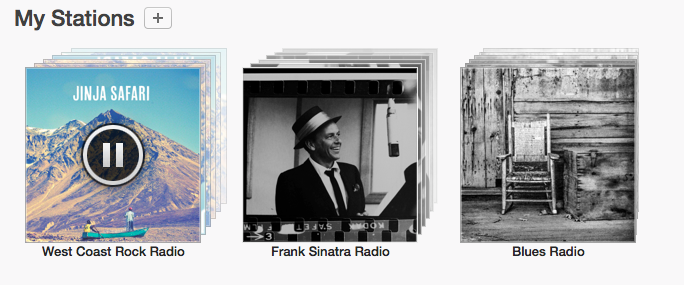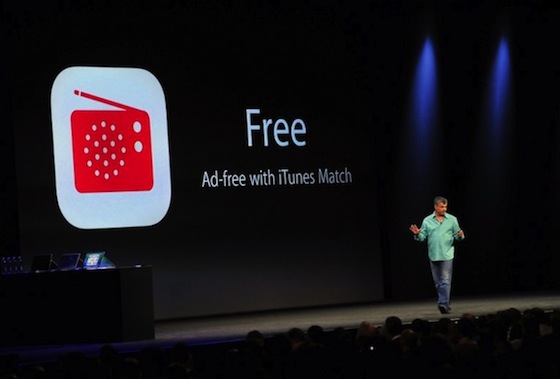Opinion from Peter Saxon
Few would argue that Apple has been the world’s single most innovative company over the past few decades. It is either first on the market with an invention nobody thought they needed until they saw it (think iPod + iTunes) or they come late into an established market and then turn it on its head with a category killer of a product (think iPhone + the app store).
iTunes Radio falls into the latter category. Although, as a product, nowhere near as revolutionary as iPhone when first launched. it has all the Apple hallmarks of elegant simplicity, particularly when used on a Mac or iOS device.
Each of the major streaming services we’ve seen so far have differed slightly in their approach. For example, Spotify allows subscribers to browse and cherry-pick songs or listen to whole albums almost as if it’s 20 million song datbase was their own, personal record collection.
On iTunes Radio it’s not easy to do that. Rather, it has a range of what it calls “stations,” each with its own “format.” These include: Hot Today, Hot Alternative, Hits of ‘80’s 90’s & Now, Classical – you get the picture.

On top of that there are special stations such as the Weekly Top 20, Guest hosted programs (this week it’s Paramore), The Beatles Station, The INXS Station, Ladies of The 80’s and many more.
These stations that underpin iTunes Radio, I’m told, are actually programmed, or rather curated, by actual people. What’s more, these actual people are actually based right here in Australia so that when you “tune in” to, say the Retro station, you’re getting songs that were actually hits in Australia.
Apart from choosing from the list of iTunes curated stations, users are encouraged to create their own. Start by choosing an artist, a genre or an album and the iTunes’ “Genius” algorithm goes to work trawling through, not just iTunes Radio’s 40 million strong library but your own record collection too, provided you’ve uploaded it to iTunes on your computer and, of course, any songs you’ve purchased and downloaded from the iTunes store.

With each track you hear, you can fine tune your station by clicking a button to “play more like this” or another that says “never play this song again.”
In effect, iTunes Radio emulates a traditional music station by playing some of your favourites mixed with some new stuff except that it’s far more interactive. You can even choose the mix of music you want between hits and new stuff. Instead of broad-based music research, iTunes Radio is constantly polling you.
Can this be the death knell for music radio broadcasting?
Well, I doubt it. For all it’s bells and whistles in terms of selecting and playing music, iTunes Radio can’t tell you tomorrow’s weather in Cairns or how long it will take you to get to Tullamarine from Swanston Street. It won’t give you the cricket score and more importantly than give you a summary of the game. For all its brilliance as a juke box with a brain, iTunes Radio lacks heart, soul and a sense of humour.
Nonetheless, it has the potential to divert advertising revenue from broadcast radio, if broadcast radio doesn’t pay attention.
Whatever the threat to broadcast radio that’s posed by music streaming, adding iTunes Radio to the players already in the market doesn’t add much to it.
If iTunes Radio represents any real threat it is to the established market leaders in the music streaming space such as Pandora and Spotify. Not because iTunes Radio is so much better than them – it’s good but it’s no category killer – rather, because it is seamlessly integrated into iTunes, it has acquired access its own giant well-established user base from day one.

Peter Saxon

